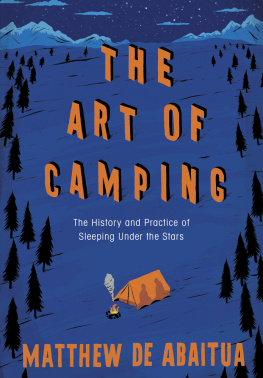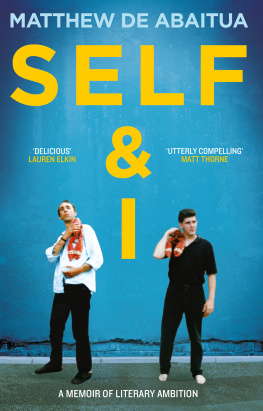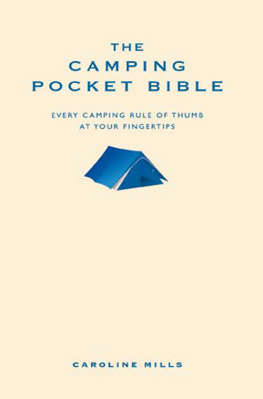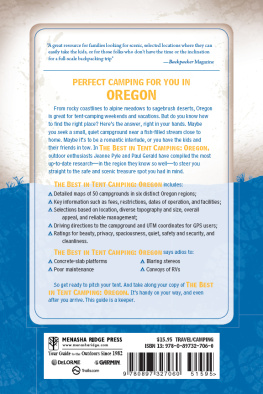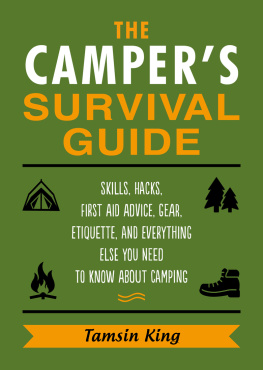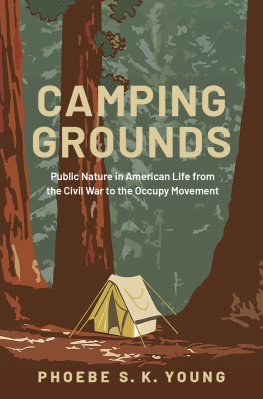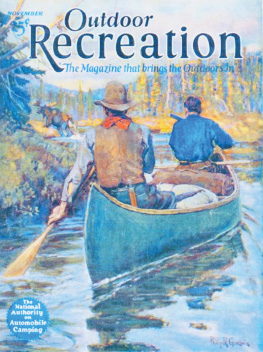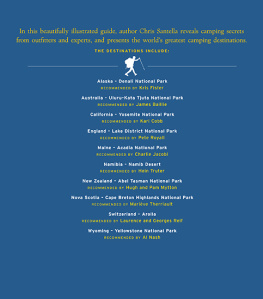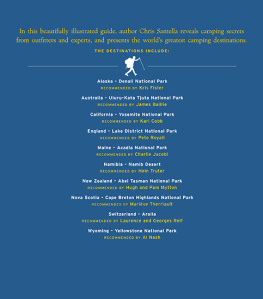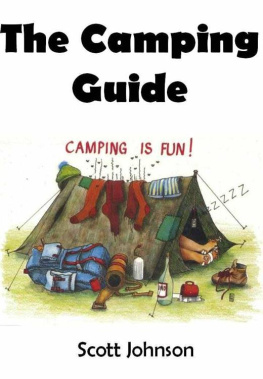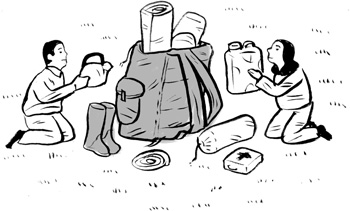Matthew De Abaitua - The Art of Camping: The History and Practice of Sleeping Under the Stars
Here you can read online Matthew De Abaitua - The Art of Camping: The History and Practice of Sleeping Under the Stars full text of the book (entire story) in english for free. Download pdf and epub, get meaning, cover and reviews about this ebook. publisher: Penguin Books Ltd, genre: Home and family. Description of the work, (preface) as well as reviews are available. Best literature library LitArk.com created for fans of good reading and offers a wide selection of genres:
Romance novel
Science fiction
Adventure
Detective
Science
History
Home and family
Prose
Art
Politics
Computer
Non-fiction
Religion
Business
Children
Humor
Choose a favorite category and find really read worthwhile books. Enjoy immersion in the world of imagination, feel the emotions of the characters or learn something new for yourself, make an fascinating discovery.
- Book:The Art of Camping: The History and Practice of Sleeping Under the Stars
- Author:
- Publisher:Penguin Books Ltd
- Genre:
- Rating:4 / 5
- Favourites:Add to favourites
- Your mark:
The Art of Camping: The History and Practice of Sleeping Under the Stars: summary, description and annotation
We offer to read an annotation, description, summary or preface (depends on what the author of the book "The Art of Camping: The History and Practice of Sleeping Under the Stars" wrote himself). If you haven't found the necessary information about the book — write in the comments, we will try to find it.
Publisher: Penguin Books Ltd
Publication Date: July 7, 2011
ISBN: 978-0-14-196895-7
Request #1562349041.43503
Could there be another way of life? Can I survive with less stuff? Should I run for the hills?
These are all good questions that people have asked before, throughout history, and which have inspired people to set up camp. But now camping is part of the drive for self-sufficiency, a reaction against mass tourism, a chance to connect with the land, to experience a community, to leave no trace . . .
From packing to pitching, with hikes into the deep history of the subject and encounters with the great campers and camping movements of the past, this is the only book youll need to pack when you next head off to sleep under the stars.
IF THERE IS ONE THING THAT CAMPERS LIKE MORE THAN CAMPING, ITS DREAMING ABOUT THEIR NEXT TRIP
Why camp? What inspired people to start? And how do you do it properly? From packing to pitching, with hikes into the deep history of camping and encounters with the great and the good - and also the mad and the bad - campers of the past, this is the only book youll need to pack when you next head off to sleep under the stars.De Abaitua is a serious camper and a really fine writer, and the result is a revealing and consistently absorbing celebration of a passion. Fascinating, rich. Sunday Telegraph
An elegant ode to the joys of camping. All sorts of tips on campsite etiquette, lore, equipment, and best practice, and his advice is convincing and honest. He is a lovely writer and his history is enlivened with tremendous flashes of wit. Daily Telegraph
Teaming witty anecdotes with a potted history of what sleeping under the stars means sociologically, De Abaitua makes learning how to create a tented home away from home fun. Elle De Abaitua will soon have you believing in this consistently engaging and enjoyable book. Its a fine writer indeed who can seem authoritative, approachable and just great fun. Metro A gem of a book. Economist
Does for camping what Roger Deakin did for wild swimming. Independent
Matthew De Abaitua: author's other books
Who wrote The Art of Camping: The History and Practice of Sleeping Under the Stars? Find out the surname, the name of the author of the book and a list of all author's works by series.

